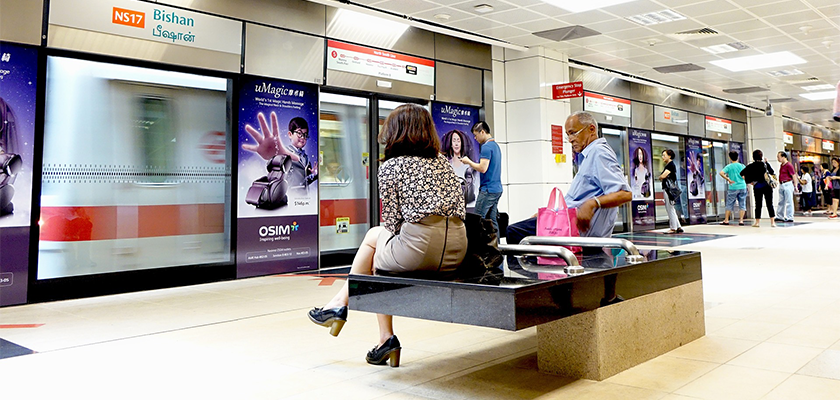Singapore is testing a new hands-free ticketing technology to make it easier for people with disabilities to enter and exit stations. The trial, which started late June, will run for six months in four MRT stations and involves 50 participants.
The trial will allow Land Transport Authority (LTA) to assess the effectiveness and feasibility of the hands-free technology they launched together with ST Engineering. The objective is to fine-tune the system to create a more inclusive transport system.
How does hands-free ticketing work?
The hands-free ticketing technology removes the need for commuters to tap their cards at fare gates. Instead, participants can just walk through carrying a radio frequency identification (RFID)-enabled card. Sensors on both sides of the fare gates read these cards, even if they are in bags or pockets.
The RFID technology is similar to the one retailers use to deter shoplifters. Whilst traditional contactless technology operates with distances of 2-5 centimetres, RFID has a much longer range. It can reach several meters, so tickets can be readable even in pockets, backpacks or purses.
Studied trial stations
The hands-free ticketing technology will run in Redhill, Tiong Bahru, Bedok and Kembag MRT stations. The reason behind this is double. On the one hand, the first two are near two entities that work with people with disabilities. On the other, Bedok and Kembang are close near LTA’s Bedok campus, which makes it easier for authorities to monitor the operational impact of the trial.
Next steps
Hands-free access to public transport implies new levels of freedom and mobility for people with disabilities. At the same time, it could generate added convenience and speed for all commuters. Using public transport would be faster, easier and more fluent during rush hours.
Nevertheless, LTA has not confirmed the technology will be made available to all passengers. Cost and feasibility must be assessed. Furthermore, more development would be required. Senior Minister of State for Transport Dr Janil Puthucheary told journalists the sensor had difficulties to detect the card when he was wearing it around his neck. However, “it was very easy when I had it in my pocket” he claimed.
For the moment, the LTA has said the trial will be extended to buses later this year. Also, they plan to expand the technology to a Bluetooth-enabled mobile phone application.
Deeper insight
For more information on the hands-free ticketing technology, read the following Today online article.



